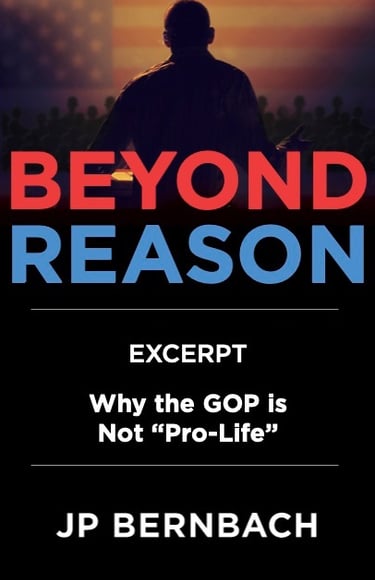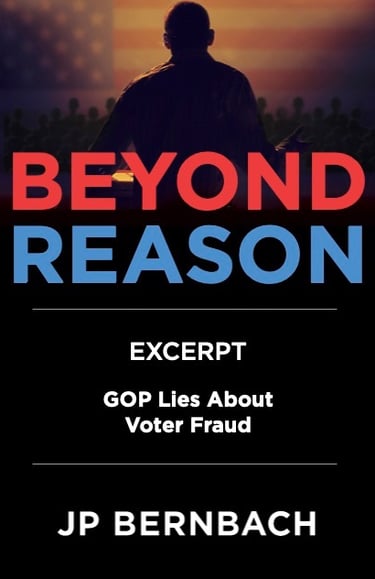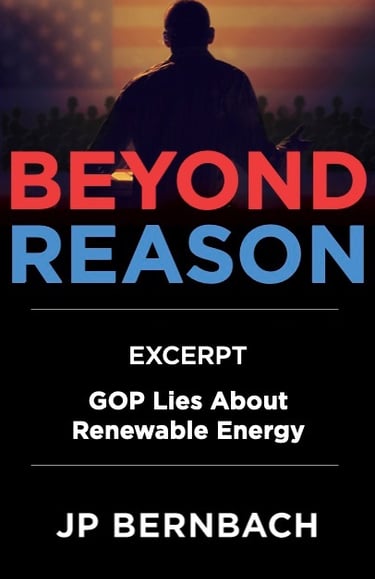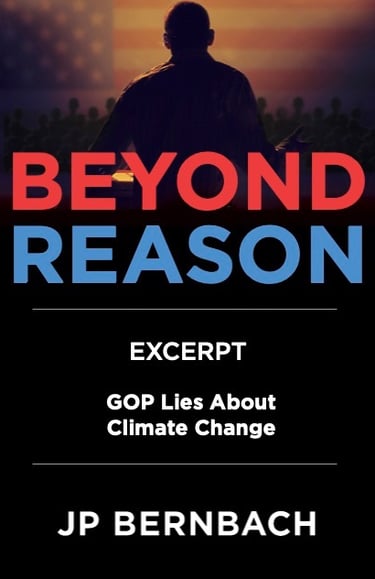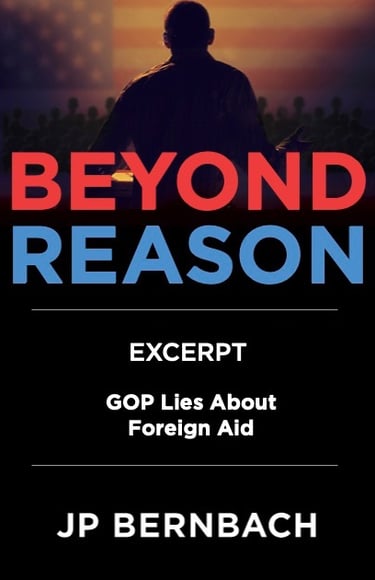BEYOND REASON
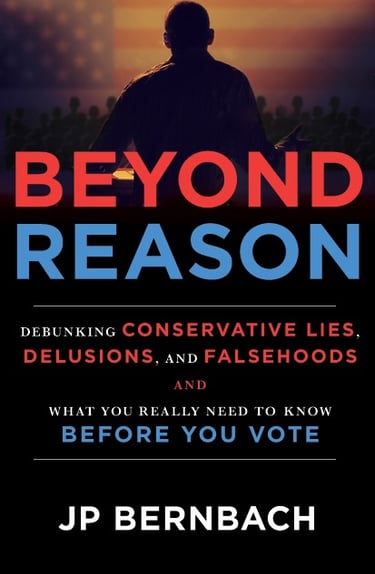

Beyond Reason' presents one of the most comprehensive and rigorously researched refutations of the major Right-wing misconceptions, delusions, and outright lies that have come to dominate the discourse and policies of conservative politics. Conservatives inhabit an alternative reality in which Obamacare establishes “death panels,” waves of criminals are finding their way over the Mexican border, tax cuts for the rich benefit the middle class, Liberals are waging a war on Christianity, voter fraud is eroding our democracy, and climate change isn’t happening. In 'Beyond Reason,' author J.P. Bernbach meticulously dismantles each of these arguments and more. Bernbach does more than simply correct the record on dozens of dangerous falsehoods, he demonstrates that the current brand of American Conservatism is completely detached from, and indeed hostile to, reality itself – an ideology beyond reason. Written in a tough but reasonable tone, lightened throughout by flashes of wit, 'Beyond Reason' is essential reading for anyone who is fed up with all the right-wing spin, hype, hysteria, and plain nonsense that prevents reasonable debate about the actual challenges facing America today.
"Just read it and then share with everyone you know. This is not just for this election. This sums up and refutes conservative lies. I was schooled on the foreign aid issue. That alone is worth the price of the book."
"This book demystifies and discloses the truth around dozens of issues obfuscated for partisan purposes that have been to our nation's detriment. Never more timely!"
"Excellent explanation of the conundrum of voters continuing to vote against their best interests..."
"Bernbach's writing is accessible and he lays out cogent arguments, challenging what's been accepted as "truth" in mainstream media. Great book."
"I confess, I am not even halfway through yet, but it is outstanding."
Reader Reviews
Publication date: January 9, 2016
Publisher: Astor + Blue
ISBN : 978-1681200
318 pages


photo by T.M. Rives
